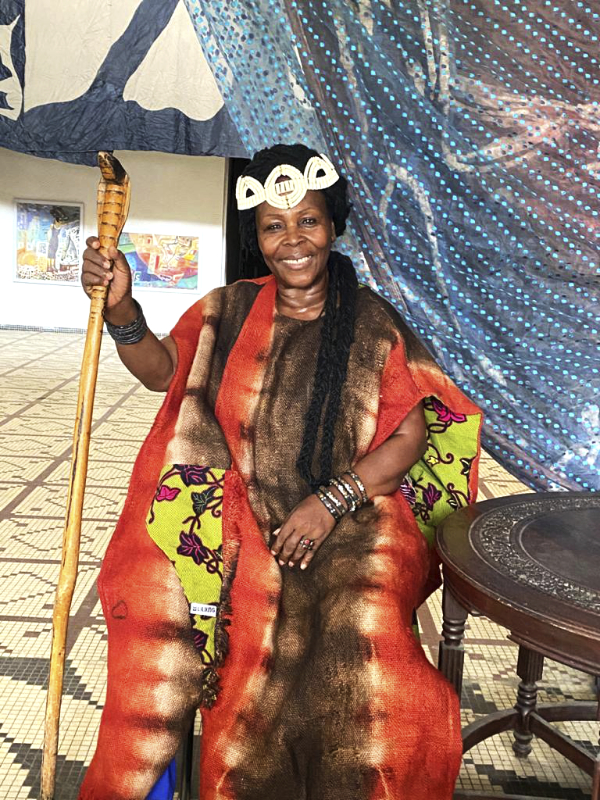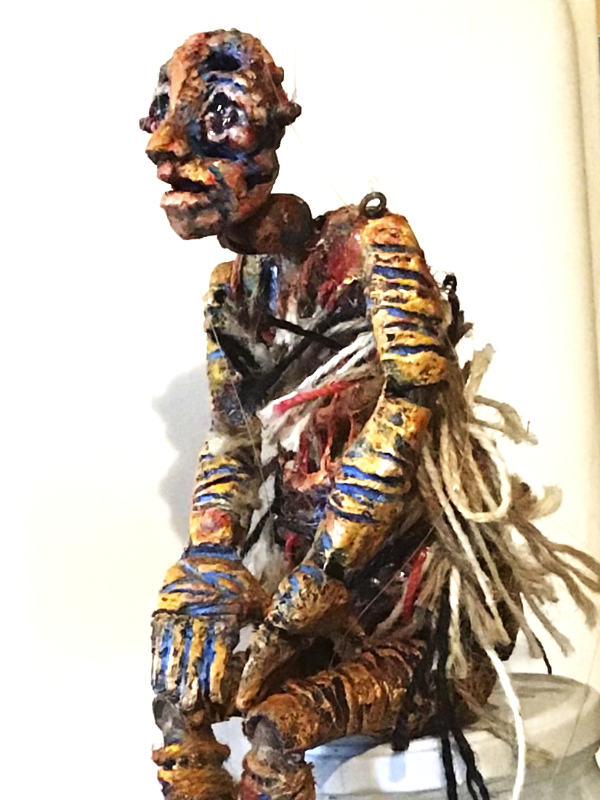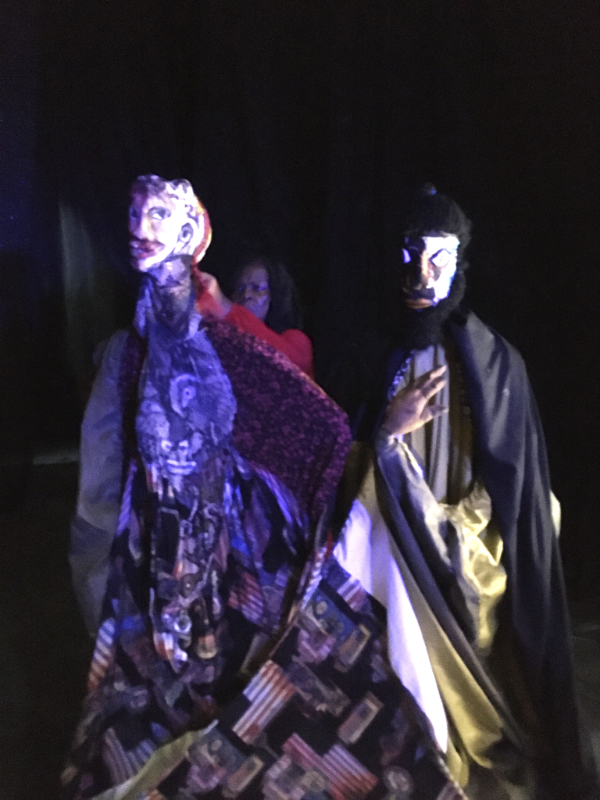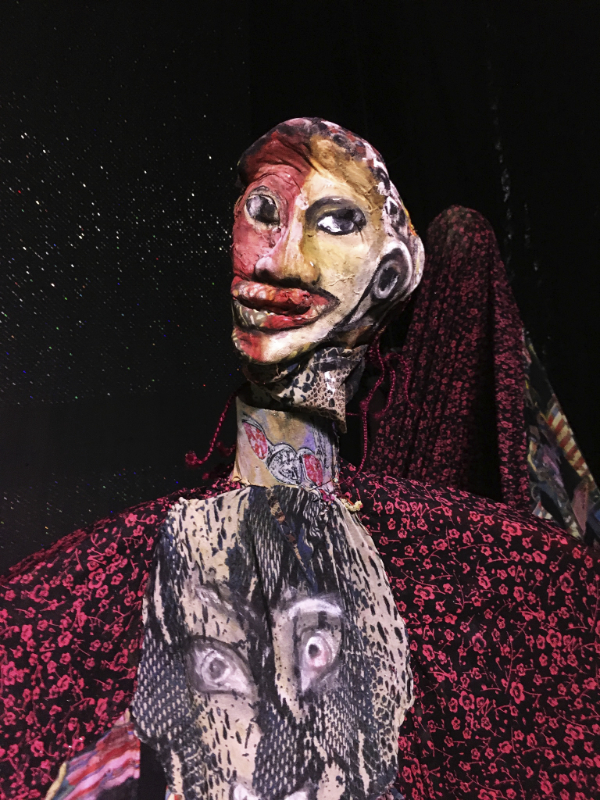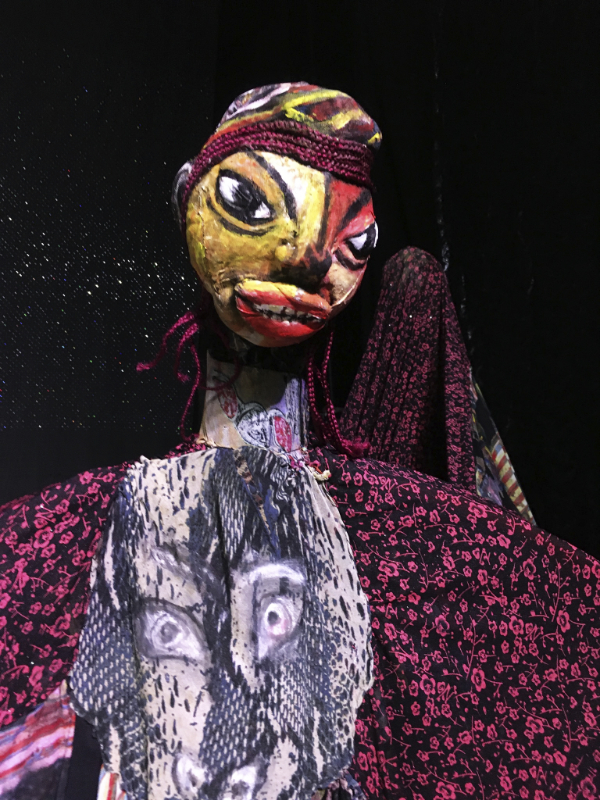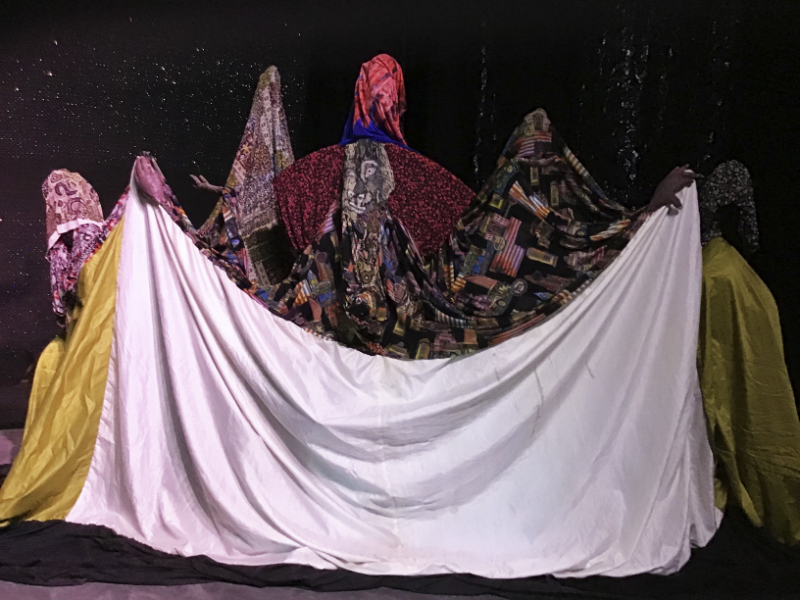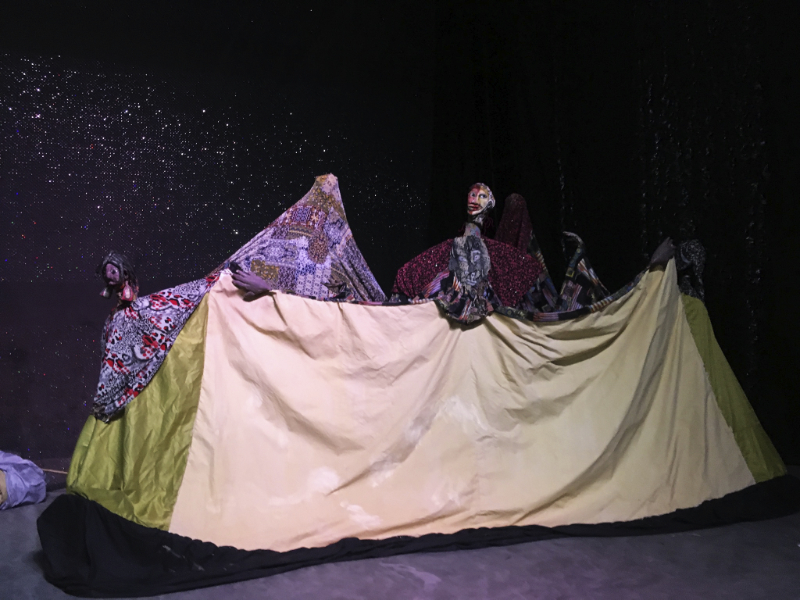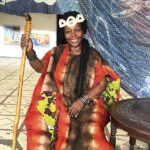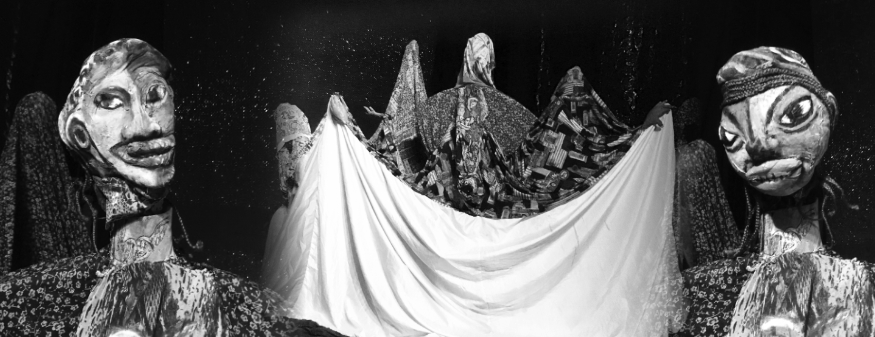
Here is an edited recording of the performance
Testimonial
A journey, a collaboration
Reading Werewere-Liking Gnepo’s collection of poems, entitled “Migration of the Word”, was for me an unprecedented journey (it’s a trite expression, but I can’t think of anything better…) – a journey that took me into hellish darkness here and lofty splendours there. It was a journey that also required me to look into the history of Africa, the Africa of yesterday, as well as the Africa of today…
I have no pretension of being able to talk about poetry. I would be too afraid to stifle it with my inadequate words. Talking about poetry is a vocation in its own right. A contemporary American painter (Barnett Newman) once exclaimed that “aesthetics is to the artist what ornithology is to birds”. This is a proposal that reassures me in this case. I am not the ‘bird’ that Werewere-Liking Gnepo is, but I am still a bird.
The poet, the artist, turns to something else, to that which has nothing to do with any theory and over which reason has no control. Thus, the true artists learn to silence their intellectual analyses in order to let themselves be led by the unspeakable. This is what makes the act of creation so pleasurable as well as painful. Then, their readers, their sensitive audiences, also follow the path they have traced.
In any case, I can say that in Were’s poems I saw, or felt, several levels of meaning. On the first level, one imagines this caravan of poetry – a journey that actually took place, in space and time. One participates in the poet’s observations, is moved by them, is inspired by them, is stunned by them, gets slapped in the face and is torn apart. But what really transported me, so to speak, and made me want to use these poems as a starting point for a performance collaboration between us, was the fact that, for me, the ultimate destination of this – migratory – journey always seemed to be a real – and accessible – spirituality, because the reader of Werewere’s poems is carried on the wings of deep human compassion and positivity. I wondered: can we convey all these levels of reading in images? Quite a challenge, I can tell you, for such a short 6 weeks of work!
I believe that every human being longs for something in their soul. As if we were missing something essential, as if we were looking for something lost, something forgotten.
I quote Were:
It is perilous but vital, isn’t it? “… the caravan passenger in search of her destination Finds herself on a tightrope…”, she sings.
And then Were passes on a remedy: “To remember your divinity and become a god again / Full of passion for yourself and for creation / As the God of love and tolerance, God the Mother”
A modest metaphor: Let’s say we have a tub full of water, into which someone has wickedly poured a quantity of red, acidic dye. This is the world. Obviously, we could never remove the dye from this contaminated water. But if you add pure water to the tub, even if it’s only in droplets, the dye in the tub will gradually dilute and become paler and paler, until we see no trace of it and the water is finally drinkable.
Among other things, isn’t true art so many drops of pure water in this tarnished, undrinkable water? In this unbearable world? Whether visual, literary or musical, I find that Werewere-Liking Gnepo’s poetic expression is permeated by this pure, purifying water. And as long as there are people like her on this earth, I think there is hope.
Mary Sharp
Abidjan, June 2021
